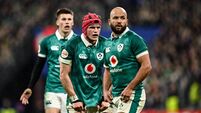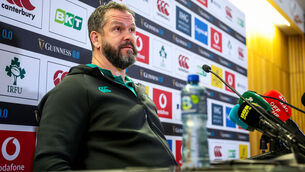France needs to fall in love with rugby again
In time, the history books will show that a few weeks ago, France reached a World Cup final where they beaten by a point by the All Blacks. But French rugby remains at a low ebb since the tournament finished in New Zealand, and is badly in need of some kind of a thirst-quenching pick-me-up.
Like all sports, the difference between winning and losing can be a fine line and all of France is continuing to come to terms with the disappointment of their narrow loss in the World Cup final. That day, it wasn’t so much a fine line; rather referee Craig Joubert’s interpretation of the offside line that invoked French ire. Allied to what had gone before — the humiliating defeats in the pool stages by Tonga and New Zealand, the dubious win over Wales and the very public breakdown between players and coach — it has left France in a state of shock that will take some time to get over.















